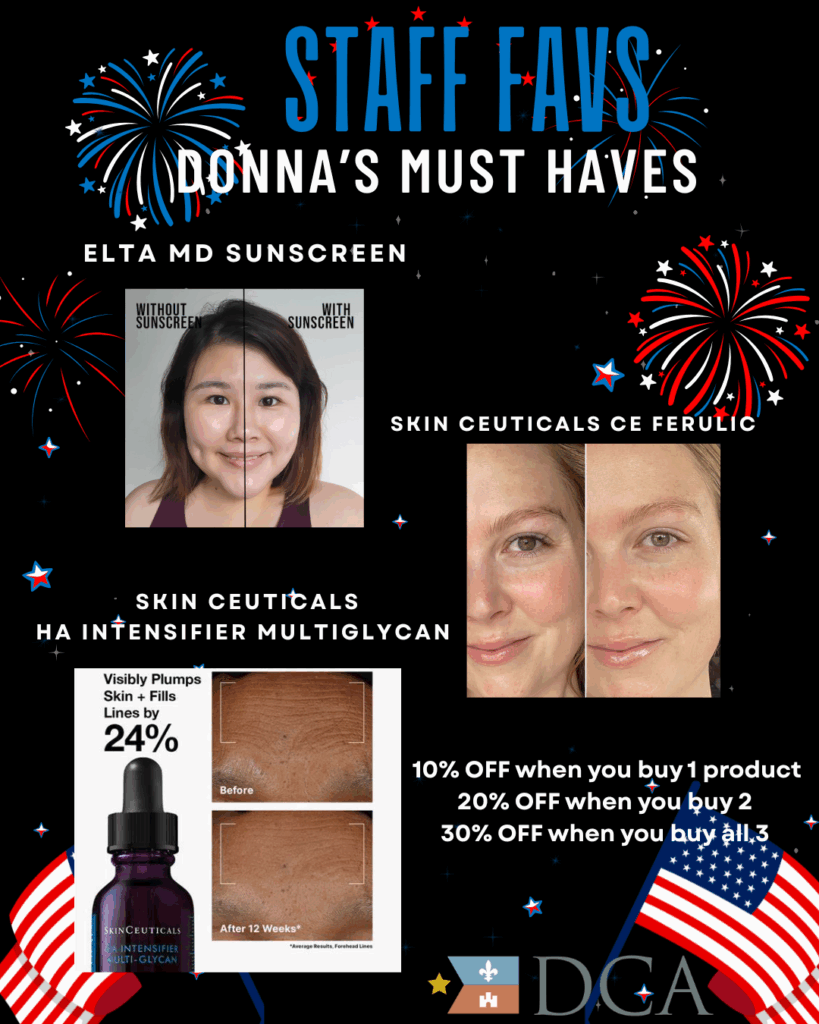
Chemical peel are fast, highly effective treatments for sun damage, acne scars, uneven skin tone, rough texture, and fine lines. One of the most popular skin care treatments, peels work by speeding up the skin’s natural exfoliation process. The peel also stimulates the skin’s natural healing process, forcing the cells to renew themselves. After a peel, your skin will look fresher, smoother and more youthful than before the chemical peel.
Our skin naturally renews itself. As healthy new cells grow, old skin cells fall off. Unfortunately, the process slows with time. This can leave your skin looking rough, uneven, discolored and dull. You might even notice age spots or fine lines. The chemical solution in a peel weakens the bonds between the old and new cells so that the old cells fall off faster, and you’re left with a refreshed, renewed complexion.
Safety and Effectiveness
Dermatologists have offered chemical peel for more than half a century, and they have a strong, reliable safety record. Virtually anyone can benefit from a peel, but you do need to see a board-certified dermatologist for the best results. Not only do dermatologists have access to the strongest peels and most effective ingredients, but they can also ensure your safety and wellbeing.
Some patients might need to do pre-peel prep to get their skin ready for the peel and ensure maximum effectiveness.
Choosing Your Peel
There are many effective peels available today, including:
- Glycolic Acid, which penetrates deep into the skin to even skin tone, erase fine lines, destroy acne blemishes and combat excess oil
- Salicylic acid, which can be used on oily, acne-prone skin and can both combat acne breakouts and relieve redness and inflammation
- Trichloroacetic acid, which is a deeper peel that can treat acne, soften acne scars, smooth fine lines, eliminate dark spots and blemishes, and rejuvenate the skin
 Light or superficial peels are great for beginners or people with minor skin concerns like blackheads or dullness. They’re highly effective for use on all types of skin but may need to be repeated several times to achieve maximum effectiveness.
Light or superficial peels are great for beginners or people with minor skin concerns like blackheads or dullness. They’re highly effective for use on all types of skin but may need to be repeated several times to achieve maximum effectiveness.
Medium peels penetrate more deeply than light peels, and they are often used to erase blemishes, soften fine lines and eliminate uneven skin tone.
Deeper peels penetrate to the deeper layers of skin, making them ideal for deep wrinkles, and severe sun damage.
Combination peels can be made using any of these ingredients for a powerful one-two punch of skin rejuvenation and renewal. Peels can also be adjusted for strength. A dermatologist can help you decide on the right type of peel and the best strength for your skin type and tone.
Risks and Benefits of Chemical Peels
The benefits of a peel can be extensive. Chemical Peels remove built-up layers of skin, which brightens your complexion, clears pores and reduces acne breakouts. They boost cell turnover and stimulate collagen production. They can even lighten or erase dark spots, melasma, and sun damage while smoothing over fine lines and wrinkles.
When performed by a board-certified dermatologist, chemical skin peel are extremely safe. However, there are some potential risks, which can be increased by poor aftercare, including permanent changes in skin color, infection or scarring.
What to Expect
Your skin will be cleaned thoroughly to remove any oil or buildup that could interfere with the peel’s penetration. Then, the special chemical solution will be applied to your skin. It will remain on your skin for a period before a neutralizing solution is applied. Some peels are self-neutralizing and can stay on your skin longer.
During the procedure, you might feel a slight burning or stinging sensation, but this is usually short-lived. Once your peel is over, your skin might be inflamed or look sunburned. The peeling will begin within a few days, but it’s important that you don’t pick or peel the loose skin because this can damage the new skin emerging. Use a gentle cleanser and moisturizer as you heal, and protect your skin with sunblock before going outside. The peeling should stop within a week, and your skin will be glowing.
Contact DCA today to schedule your chemical consultation!

